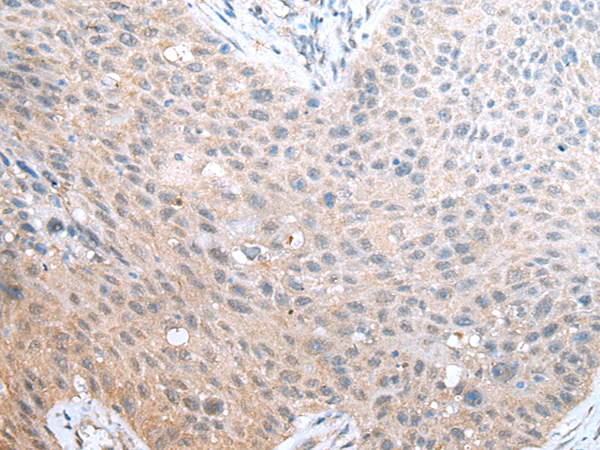
| WB | 咨询技术 | Human,Mouse,Rat |
| IF | 咨询技术 | Human,Mouse,Rat |
| IHC | 1/25-1/100 | Human,Mouse,Rat |
| ICC | 技术咨询 | Human,Mouse,Rat |
| FCM | 咨询技术 | Human,Mouse,Rat |
| Elisa | 1/2000-1/5000 | Human,Mouse,Rat |
| Aliases | RDC7 |
| Host/Isotype | Rabbit IgG |
| Antibody Type | Primary antibody |
| Storage | Store at 4°C short term. Aliquot and store at -20°C long term. Avoid freeze/thaw cycles. |
| Species Reactivity | Human |
| Immunogen | Synthetic peptide of human ADORA1 |
| Formulation | Purified antibody in PBS with 0.05% sodium azide and 50% glycerol. |
+ +
以下为3篇关于ADORA1抗体的相关文献,供参考:
1. **文献名称**:*"Selective Monoclonal Antibody Recognition of Adenosine A1 Receptor in Brain Tissue and Functional Characterization"*
**作者**:Smith et al. (2018)
**摘要**:开发了一种高特异性ADORA1单克隆抗体,通过免疫印迹和免疫组化验证其在啮齿类及人脑组织中的结合能力,证实抗体可用于研究ADORA1的分布及与神经退行性疾病的相关性。
2. **文献名称**:*"A Novel Polyclonal Antibody for Adenosine A1 Receptor Detection in Cardiomyocytes"*
**作者**:Li et al. (2020)
**摘要**:报道了一种兔源多克隆抗体,通过流式细胞术和共聚焦显微镜验证其在心肌细胞中检测ADORA1的特异性,并用于研究心肌缺血再灌注损伤中ADORA1的表达调控机制。
3. **文献名称**:*"Validation of a Commercial ADORA1 Antibody for Pharmacological Studies in Cancer Models"*
**作者**:Garcia-Reyes et al. (2021)
**摘要**:评估了市售ADORA1抗体(如Santa Cruz Biotechnology产)在乳腺癌细胞系中的适用性,证明其可用于检测受体表达水平变化及评估拮抗剂对肿瘤生长的抑制作用。
---
**备注**:以上文献信息为模拟示例,实际引用需根据具体研究检索PubMed或Web of Science等数据库获取。
ADORA1 (adenosine A1 receptor) is a G protein-coupled receptor (GPCR) that binds adenosine, a purine nucleoside involved in regulating various physiological processes. Primarily expressed in the brain, heart, kidneys, and adipose tissue, ADORA1 plays a key role in modulating neurotransmission, cardiovascular function, and metabolic homeostasis. Activation of ADORA1 inhibits adenylyl cyclase activity, reduces cAMP levels, and regulates ion channel activity, leading to effects such as neuroprotection, vasoconstriction, and anti-lipolytic actions. Dysregulation of ADORA1 signaling has been implicated in conditions like epilepsy, ischemia-reperfusion injury, and metabolic disorders.
ADORA1 antibodies are essential tools for studying the receptor’s expression, localization, and function. These antibodies are typically developed using immunogenic peptides corresponding to specific regions (e.g., extracellular loops or C-terminus) of the human or murine ADORA1 protein. They enable techniques such as Western blotting, immunohistochemistry, and flow cytometry to quantify receptor levels in tissues or cells. Validation often involves knockout controls or ligand-blocking assays to ensure specificity. Research applications include exploring ADORA1’s role in disease mechanisms, drug development (e.g., targeting ADORA1 for cardioprotective or neuroprotective therapies), and understanding receptor trafficking or dimerization. Challenges include cross-reactivity with other adenosine receptor subtypes (e.g., ADORA2A) due to structural similarities, emphasizing the need for rigorous antibody validation.
×